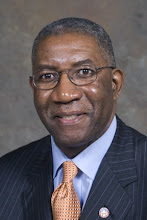©Wendell Griffen, 2010
On June 15, 2010, barely a month before the first anniversary of the notorious July 16, 2009 encounter between Sergeant James Crowley of the Cambridge, Massachusetts Police Department and Professor Henry Louis Gates, Jr. of Harvard University, a report was issued by the Cambridge Review Committee, a volunteer panel of individuals selected by the City of Cambridge "… for their knowledge of issues in policing and criminal justice, law, race, community relations, organizational behavior, and conflict resolution, as well as their knowledge of the City of Cambridge." The Report, titled, "Missed Opportunities, Shared Responsibilities," asserts that the Crowley-Gates incident was "avoidable" and occurred because "Sergeant Crowley and Professor Gates each missed opportunities to 'ratchet down' the situation and end it peacefully."
Even assuming the best intentions of the Cambridge Review Committee and anyone else responsible for their effort, the report missed the opportunity to state the obvious. Henry Louis Gates, Jr. should have never been arrested for disorderly conduct outside his own home merely because he accused Sergeant Crowley of behaving in a racist manner. Crowley's decision to arrest Gates for disorderly conduct—nothing else—made the incident notorious.
The 64 page report reads as if Gates somehow was obliged to not express his displeasure about being suspected of being a thief in his own residence even after proving his identity and lawful right to be there. The report makes much ado about procedural legitimacy, police discretion, and other concepts, but says nothing about personal liberty to protest how a police officer behaves. For all its words, the "Missed Opportunities, Shared Responsibilities" report missed the opportunity to unapologetically declare that in the United States a person does not forfeit freedom of speech when confronted by law enforcement.
Sergeant Crowley had no discretion to arrest Professor Gates for criticizing his presence or loudly accusing him of behaving in a racist manner. If the First Amendment to the Constitution of the United States means anything, it means that the government cannot prohibit someone from complaining about how its officials behave. There is no discretion for any police officer to arrest someone from complaining about how the officer is performing. The fact that the officer is investigating a burglary call does not render the First Amendment pointless, useless, or void.
Had the Cambridge Review Committee desired to honestly address the Crowley-Gates episode, its report would have made this point. The section of the report that deals with "Police Discretion" would have said that while the police have discretion about whether to make an arrest when they observe unlawful conduct, there is nothing unlawful about protesting police conduct that one considers racially discriminatory, insulting, or otherwise demeaning. Disorderly conduct laws exist to punish civil disturbances, not curb civil liberty. Those laws do not justify arresting anyone for criticizing official behavior, whether by the police or anyone else.
The United States is a free society, not a police state. Strangely, the Cambridge Review Committee missed a clear opportunity to say so.
Subscribe to:
Comments (Atom)
